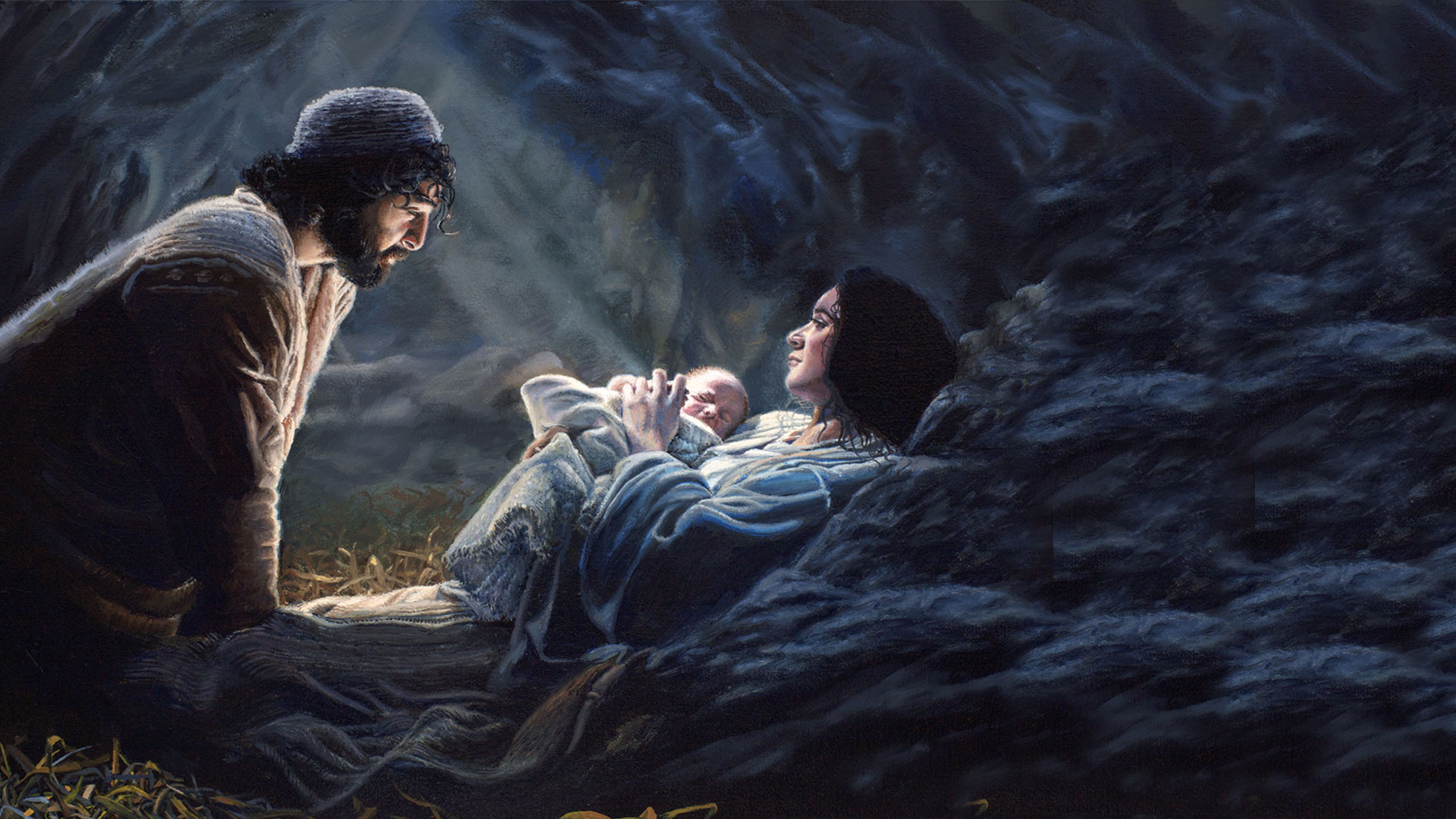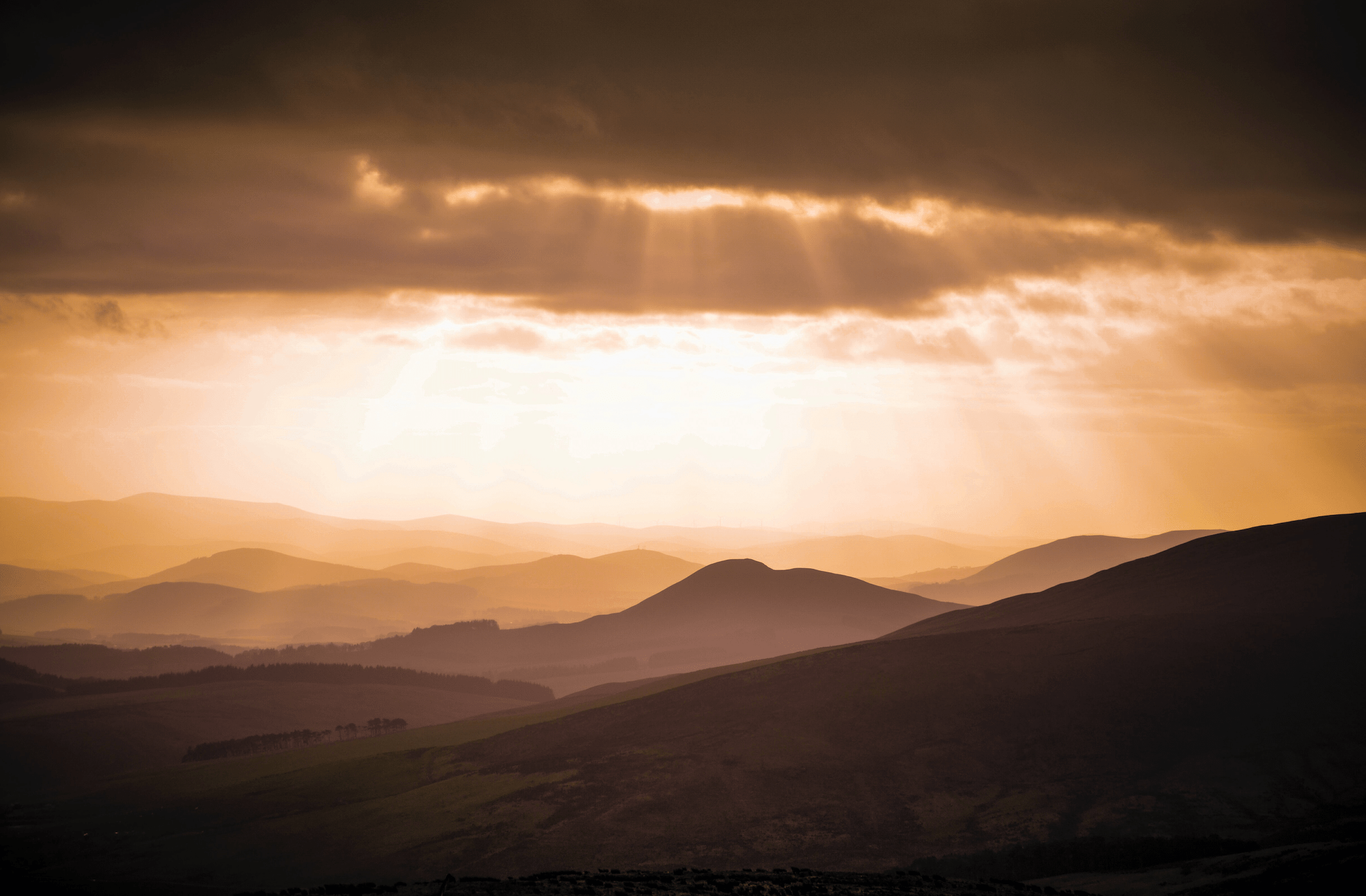Q: What is the Meaning of Faith?
People talk about “walking by faith” or “planting a seed of faith,” but what does faith actually mean? How do you know if you have it or if you have enough? And how do you get faith in the first place?
Short Answer:
Faith is belief in what you can’t see.
Long Answer:
Hebrews 11:1 says that “faith is assurance of things hoped for, proof of things not seen.” Because we’re all unique individuals, we all experience faith a little differently. And because faith is a belief in something we don’t see, it’s hard to think of a tangible definition for it. That’s why we use analogies to help define faith. Hopefully one of these comparisons will help you better understand what faith means, and how you can develop it.
The Seed Analogy – Jesus told his disciples that even “faith as small as a mustard seed” could give them power to move mountains (Matthew 17:19). He also explained that “though it is the smallest of all seeds, yet when [the mustard seed] grows, it is the largest of garden plants and becomes a tree, so that the birds come and perch in its branches” (Matthew 13:32). With faith, Jesus noted, “Nothing will be impossible for you” (Matthew 17:20). Faith is often compared to a seed because most of us are familiar with plants and can easily grasp the concept. Think of it this way: Faith is like a tiny seed that we plant in our souls. We cultivate that “seed” by giving it nourishment, such as reading the Bible, praying, meeting together with our congregation, and so on.
In nature, seeds are somewhat fragile things. They can be buried too deep and not receive enough sunlight to grow. They can be choked out by weeds or scavenged by birds or other animals. Likewise, our faith can be tested. If we don’t give it proper nourishment and protection, it fails to grow. But also like a seed, faith can do extraordinary things. Redwood Trees for example begin as seeds smaller than your fingernail. Yet they can grow to be over 300 feet tall.
Perhaps what Jesus was getting at when He used the mustard seed example was that great things can come from small things. Your belief in Jesus Christ and in His sacrifice might seem like a small thing to you. But as you continue to believe in Him, your faith will grow into something great. With time, you’ll discover that your life is filled with more hope, more peace, and more love than it ever could have been without faith.
The Oxygen Analogy – Right now, you’re breathing air—oxygen to be specific. (At least, we hope you are). The thing about air is that we can’t see it. We know that air exists, because we breathe it in every day. We see leaves scattering when the wind blows or the way a helium balloon is lighter than the air around it, yet we can’t actually discern air with our eyes. We only believe it’s there because of its effects.
Faith is similar to breathing air. When we have faith, we believe in something because we feel its effects, even if we can’t see it or touch it. Just like breathing is essential for our physical bodies, faith is essential for our spiritual selves.
Many of us aren’t scientists and don’t understand everything about air. We probably don’t fully understand the molecular makeup of air, how our bodies process oxygen and turn it into CO2, etc. Yet, we still breathe it anyway. We don’t deny the existence of air just because we don’t have a perfect knowledge of it. Likewise, we can’t fully comprehend how Jesus suffered for all of our sins, and how that sacrifice can vicariously cleanse us. There’s a lot about that process that is difficult for mortals to grasp. Faith is believing in Christ and in His sacrifice, despite a perfect understanding of how it all works.
The Stairs Analogy – Martin Luther King Jr. once described faith as “taking the first step even when you don’t see the whole staircase.” An example of this kind of unwavering faith comes from the Old Testament, when God asked Abraham to sacrifice Issaac. Abraham couldn’t see ahead to what God had in store for him. All he knew was that he was being asked to sacrifice his only son, a son he had prayed many years for. But he took that first step, because he believed in God, and he had faith that obeying would bring goodness. Because of his faith, God promised Abraham “through your offspring all nations on earth will be blessed, because you have obeyed me” (Genesis 22:18).
When we think of the opposite of faith, we often think of doubts. We might even feel guilty for having doubts, because it means we don’t have enough faith. But faith isn’t a lack of doubts. It’s a lack of action. Like Dr. King’s analogy, when we go up a dark staircase, we can have doubts. When you take a step in the dark, you might worry about treading on something or missing the next stair. But you’re moving up, and that’s what’s important. If you were to just stand there frozen, you wouldn’t make any progress. You would never get where you were trying to go.
Similarly, faith doesn’t mean that we won’t have questions or concerns. It just means that we won’t stop trying to progress. There’s nothing wrong with asking questions, as long as we search for answers. And it’s important that we search for answers in the right places. If you had questions about a staircase you were climbing, the best answers would come from the person who built the staircase. When it comes to faith in Christ, the best answers come from the source of all truth: God Himself. We can pray to God and search His Word when we have doubts. We can also rely on those in our life who have our best interest in mind.
Faith Makes Us Whole – Jesus told many of the people He healed that their faith had made them whole. Obviously these people had great faith to be physically healed, but perhaps Jesus was also speaking figuratively. Maybe He meant that their faith had made them spiritually whole, that it completed them, filling in the holes of mortal understanding and limitations. Sometimes we might look at these miracles and wonder why we can’t make a similar miracle happen in our own life. But the purpose of faith isn’t to fix all of our problems. Instead, faith turns us toward the One who can help us endure them.




